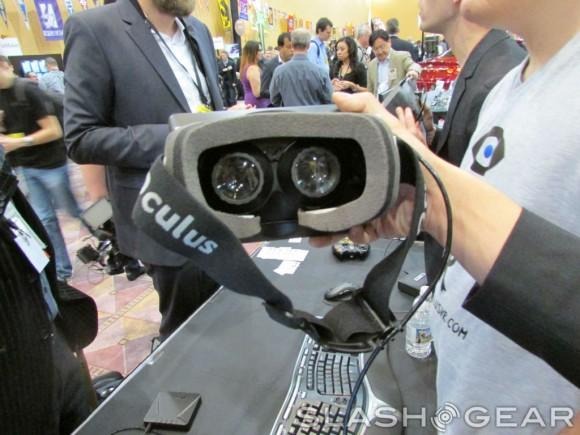Oculus Rift latency and motion sickness issues addressed
We've been hearing alot about virtual reality lately, especially with the popularity of the Oculus Rift headset gaining massive traction. While the team at Oculus has been focused on improving the hardware (such as upgrading it to 1080p), they're also putting their efforts towards solving latency issues and cutting down on motion sickness.
Latency can be a huge problem when gaming, but it's even more of a problem when gaming using a virtual reality headset like the Oculus Rift. The company says that "latency is widely recognized as a key source of disorientation and disbelief," since the brain can't be fooled. To fix latency problems, Oculus is working on something called "predictive tracking," which gives the VR headset the ability to predict where the head is going to be, rather than just stay in the present or the past.
As for motion sickness, that's something that's a bit more difficult to tackle, since it depends on the person using the VR headset and their vulnerability to get sick. Rather than a hardware or software issue, it's purely a natural issue that can't really be fixed 100%. However, Oculus notes that game developers can at least reduce motion sickness by using some clever design techniques.

The company notes that "the causes of most forms of motion-induced illness...are poorly understood. Although we don't understand the physiology well, we do understand many of the things that cause it," and they "can be solved with good (though complex) engineering." Things that developers can improve to reduce motion sickness are things such as camera calibration and distortion correction, but there also a heap of things are hard to improve, like disparity between focus depth and vergence.
In the end, the best solution that game developers can come up with, according to Oculus Rift, is "do the math right, don't cut corners, be kind to your sensitive players, and encourage them to take it slowly at first." That's sound advice, and can almost even be applied to any game out on the market today.
VIA: Engadget
